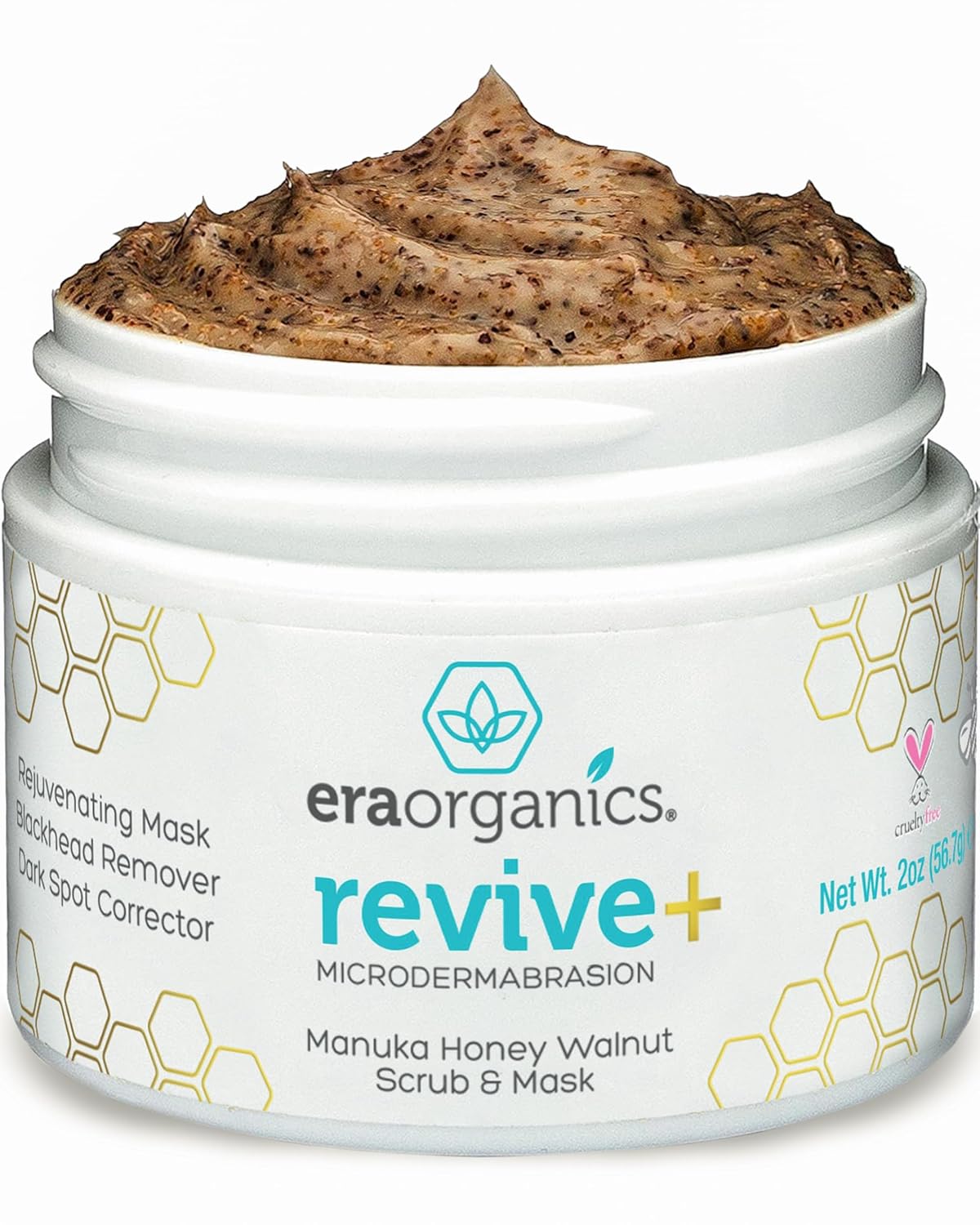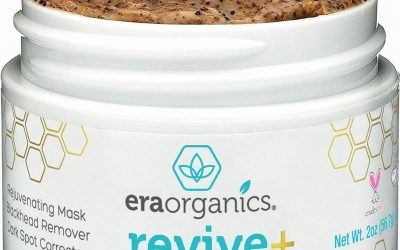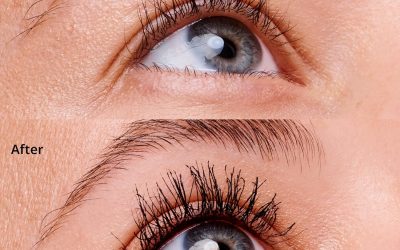Discover how natural and organic ingredients are revolutionizing American skincare Natural & Organic Skincare

The natural and organic skincare revolution has reached a sophisticated new phase in 2025. “Clean beauty” is no longer just about what ingredients you avoid. It’s about the powerful, science-backed botanical you embrace. American consumers are demanding transparency, efficacy, and environmental responsibility from their skincare routines. This demand is driving brands to innovate with cutting-edge natural ingredients. These ingredients deliver visible results. From bio-fermented botanical to marine algae extracts, this year’s trends show a significant evolution in natural skincare. It has moved far beyond simple plant oils. It has advanced into effective formulations. The minimalist “minimalism” approach is part of this evolution. Natural & Organic Skincare
The Clean Beauty Natural & Organic Skincare Trends 2025 USA
From Natural to Effective Natural & Organic Skincare
Ingredients like natural peptides, marine algae, and bio-ferments are proof that organic formulations can deliver powerful results. This means we no longer have to choose between clean ingredients and visible improvements to our skin.
2025 Clean Beauty Standards: Natural & Organic Skincare
- Ingredient transparency: Full disclosure of all components
- Science-backed formulations: Clinical testing proving efficacy
- Sustainable sourcing: Ethical and environmental responsibility
- Non-toxic certifications: Third-party verification of safety
- Performance parity: Results matching conventional products
Market Growth: Sustainable Beauty and Skincare Market Size is valued at USA 190.7 Billion in 2024 and is predicted to reach USA 433.2 Billion by 2034, demonstrating massive consumer demand for natural and organic options.

MINIMALISM: Simplified Natural Routines
Quality Over Quantity Philosophy
In 2025, people are simplifying their routines and focusing on fewer, high-quality, organic products. Instead of 10 steps, minimalism promotes 3–4 powerful steps with nutrient-rich ingredients like reship oil, aloe very, and turmeric.
Minimalism Benefits: Natural & Organic Skincare
- Reduced irritation: Fewer products means less potential for reactions
- Cost efficiency: Investing in quality over quantity
- Environmental impact: Less packaging and product waste
- Skin barrier health: Allowing skin to work naturally
- Time savings: Streamlined routines for busy lifestyles
Essential Minimalism Steps: Natural & Organic Skincare
- Gentle cleanser: Natural, pH-balanced formulation
- Treatment serum: Concentrated active botanical
- Moisturizer: Multi-functional hydration with SPF
- Occasional treatments: Weekly masks or defoliants as needed
Botanical Innovation: Next-Generation Ingredients
Advanced Plant-Based Actives
Sustainable Beauty Trends are shaping the skincare industry, with a strong focus on natural and organic ingredients. Many brands now prefer plant-based ingredients like aloe very, chamomile, and green tea. These ingredients are known for their soothing and nourishing properties.
Trending Botanical Ingredients 2025:
- Nebula: Ayurvedic fruit with antioxidant properties
- Marine algae: Ocean-derived nutrients and hydration
- Fermented extracts: Enhanced bio availability through fermentation
- Underused plant oils: Innovative botanical discoveries
- Natural compounds: Bio-resembling skin’s natural components
Bio-Fermentation Revolution: The focus on recycled ingredients, plant-based alternatives, and bio-fermentation techniques is changing our approaches. We are transforming how we extract and enhance botanical benefits. This leads to superior skin penetration and efficacy.
Marine and Oceanic Ingredients
Sea-Sourced Benefits: Natural & Organic Skincare
- Marine algae: Vitamins, minerals, and hydration
- Seaweed extracts: Anti-inflammatory and protective properties
- Ocean minerals: Trace elements for skin health
- Marine peptides: Protein building blocks from sustainable sources
- Sea blackthorn: Omega fatty acids and vitamin C

Natural Peptides and Plant Proteins Natural & Organic Skincare
Botanical Alternatives to Synthetic Actives
There’s growing interest in botanical-based ingredients. This includes underused plant oils, fermented extracts, and natural compounds. Consumers are becoming more knowledgeable about ingredient science.
Plant-Based Peptide Sources: Natural & Organic Skincare
- Pea protein: Vegan keratin choice for strengthening
- Rice peptides: Brightening and firming properties
- Quinoa extract: Full amino acid profile
- Hemp seed peptides: Anti-inflammatory and nourishing
- Soy peptides: Collagen-boosting plant compounds
Natural Peptide Benefits: Natural & Organic Skincare
- Collagen stimulation: Supporting skin’s structural proteins
- Cell communication: Signaling skin to repair and renew
- Gentle effectiveness: Results without irritation
- Sustainable sourcing: Plant-based alternatives to animal derivatives
- Ethical production: Cruelty-free active ingredients
RECYCLED and Circular Beauty Natural & Organic Skincare
Zero-Waste Ingredient Innovation
The circular beauty economy is transforming ingredient sourcing, using byproducts and waste materials to create powerful skincare actives.
Recycled Ingredient Examples: Natural & Organic Skincare
- Coffee grounds: Exfoliating and antioxidant properties
- Fruit peels: Vitamin-rich extracts from food waste
- Grape seeds: Powerful antioxidants from wine production
- Olive oil byproducts: Nourishing compounds from pressing
- Nut shells: Natural defoliants from food processing
Environmental Benefits: Natural & Organic Skincare
- Waste reduction: Utilizing materials that would be discarded
- Resource efficiency: Highest value from agricultural products
- Carbon footprint: Lower emissions from using existing materials
- Innovation driver: Creative solutions for sustainability
- Cost efficiency: Often more affordable than virgin ingredients
Organic Certification and Transparency
Understanding Clean Beauty Labels Natural & Organic Skincare
Key Certifications: Natural & Organic Skincare
- USDA Organic: 95%+ organic ingredients
- COSMOS Organic: European standard for organic cosmetics
- Exocet: International organic and natural certification
- NSF Organic: Independent verification of organic claims
- Leaping Bunny: Cruelty-free certification
What Certifications Mean: Natural & Organic Skincare
- Ingredient purity: No synthetic pesticides or GMO
- Processing standards: Limited chemical processing allowed
- Percentage requirements: Least organic content specified
- Regular audits: Ongoing verification of compliance
- Supply chain tracking: Transparency from farm to product
Transparency Requirements
Consumer Expectations: Natural & Organic Skincare
- Full ingredient disclosure: Clear labeling of all components
- Sourcing information: Where ingredients come from
- Processing details: How ingredients are extracted and refined
- Environmental impact: Carbon footprint and sustainability data
- Testing protocols: How safety and efficacy are verified

Sustainable Packaging Innovation
Eco-Friendly Container Solutions
2025 Packaging Trends: Natural & Organic Skincare
- Refillable systems: Reducing single-use packaging waste
- Biodegradable materials: Plant-based packaging that decomposes
- Recycled content: Post-consumer recycled materials
- Minimalist design: Less packaging overall
- Concentrated formulas: Smaller packages, less shipping impact
Innovative Packaging Materials:
- Bamboo containers: Rapidly renewable resource
- Glass bottles: Infinitely recyclable and premium feel
- Aluminum tubes: Lightweight, recyclable, and protective
- Mushroom packaging: Biodegradable cushioning material
- Seaweed-based plastics: Ocean-derived biodegradable alternatives
Regional and Indigenous BOTANICAL Natural & Organic Skincare
Celebrating American Plant Traditions
Native American Botanical Heritage: Natural & Organic Skincare
- Jojoba: Desert plant for moisture and balance
- Africa: Mountain flower for inflammation and healing
- Echinacea: Purple cone flower for skin strengthening
- Calendly: Marigold for soothing and repair
- Witch hazel: Astringent and toning properties
Regional Specialty Ingredients: Natural & Organic Skincare
- Pacific Northwest: Hemlock, cedar, and Douglass fir extracts
- Southwest: Desert botanical like prickly pear and agave
- Southeast: Magnolia, jasmine, and coastal botanical
- Midwest: Prairie plants and agricultural byproducts
- Northeast: Forest botanical and maple derivatives
Top Natural & Organic Brands 2025 Natural & Organic Skincare
Leading Clean Beauty Companies Natural & Organic Skincare
Premium Natural Brands: Award-winning skincare brands use nature’s most restorative and nourishing ingredients. These include nebula, an ayurvedic fruit, and algae extract. They offer something for everyone with proven efficacy.
Accessible Organic Options: Natural & Organic Skincare
- Burt’s Bees: Natural formulations at drugstore prices
- Acute: Vegan, sustainable, and affordable
- Mad Hippie: Science-backed natural actives
- Juice Beauty: Organic ingredient focus with luxury feel
Luxury Natural Brands:
- Tata Harper: Farm-to-face organic luxury
- Ilia Beauty: Clean makeup and skincare hybrid
- RMS Beauty: Organic ingredients, luxury experience
- Vintner’s Daughter: Concentrated plant-based actives
DIY and Customization Trends Natural & Organic Skincare
At-Home Natural Skincare
Popular DIY Ingredients: Natural & Organic Skincare
- Raw honey: Antibacterial and moisturizing
- Avocado: Nourishing fats and vitamins
- Oats: Soothing and gentle exfoliation
- Green tea: Antioxidant protection
- Coconut oil: Versatile moisturizer and cleanser
Customization Services: Natural & Organic Skincare
- Personalized formulations: Custom blends for individual skin
- Ingredient choice: Choosing preferred botanical
- Concentration adjustments: Tailoring active ingredient levels
- Fragrance customization: Natural essential oil blending
- Seasonal variations: Adapting formulas for climate changes
The Future of Natural Skincare Natural & Organic Skincare
Emerging Technologies
Biotechnology Advances: Natural & Organic Skincare
- Lab-grown botanical: Sustainable ingredient production
- Genetic improvement: Enhanced plant compounds
- Cellular agriculture: Growing skincare ingredients in labs
- Biomimetic ingredients: Synthetic copies of natural compounds
- Precision fermentation: Targeted enhancement of botanical
AI and Personalization:
- Skin analysis: AI-powered ingredient recommendations
- Formula improvement: Machine learning for best combinations
- Prediction models: Forecasting how skin will respond
- Virtual consultations: Expert guidance through technology
Making the Switch to Natural Skincare
Transition Strategies Natural & Organic Skincare
Starting Your Natural Journey: Natural & Organic Skincare
- Research ingredients: Understanding what’s in your current products
- Recognize priorities: Choosing which products to replace first
- Patch testing: Ensuring compatibility with new natural ingredients
- Gradual transition: Replacing products one at a time
- Patience for results: Allowing time for natural ingredients to work
Common Transition Challenges: Natural & Organic Skincare
- Adjustment period: Skin adapting to new ingredients
- Texture differences: Natural products may feel different
- Immediate results: Natural ingredients often work gradually
- Finding the right products: Trial and error in choice
- Cost considerations: Natural products can be pricier
The Bottom Line: Natural Beauty Revolution Natural & Organic Skincare
Natural and organic skincare in 2025 symbolizes the perfect marriage of ancient botanical wisdom and cutting-edge science. This year’s innovations range from bio-fermented extracts that enhance ingredient bio availability to marine algae providing ocean-derived nutrients. These advancements prove that natural skincare has evolved into a sophisticated, results-driven category. It rivals conventional products in efficacy and surpasses them in safety and sustainability.
The minimalism movement shows that effective natural skincare doesn’t need complicated routines. It only needs thoughtfully formulated products with powerful organic ingredients. As the market grows from $190.7 billion in 2024 to a projected $433.2 billion by 2034, consumer demand is clearly driving brands toward cleaner, more transparent, and more effective natural formulations.
Success in natural skincare comes from understanding that “natural” and “effective” are no longer mutually exclusive. With proper research, patience, and quality product choice, you can achieve beautiful, healthy skin. You can also support sustainable practices while avoiding harmful chemicals.
Natural skincare isn’t just about what you avoid. It’s about embracing powerful botanical. These botanical truly transform your skin.
Ready to embrace natural skincare? Start by replacing one product with a certified organic choice and experience the difference clean beauty can make.
What’s your experience with natural skincare? Share your favorite organic brands and ingredients in the comments!




0 Comments